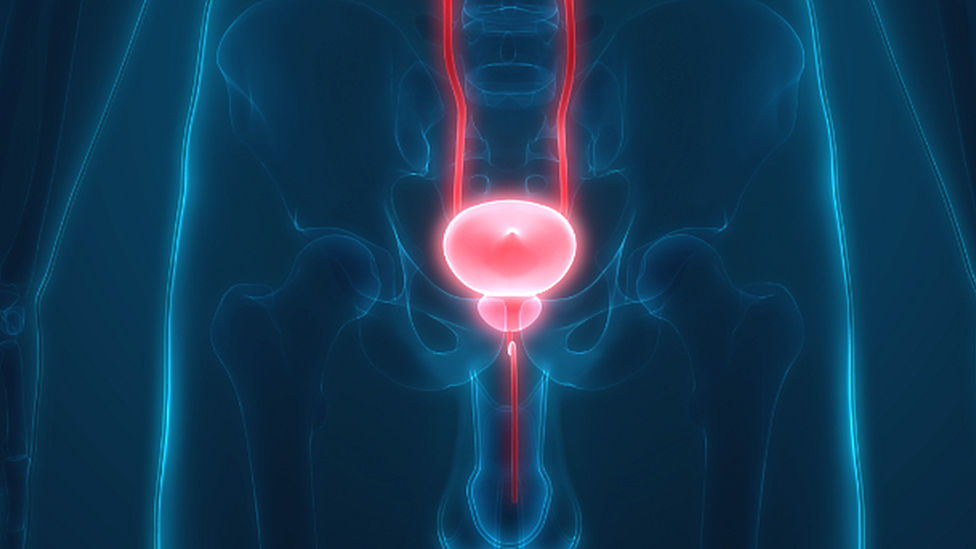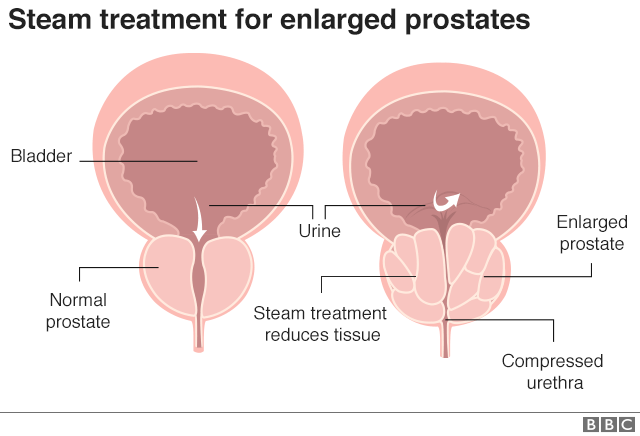Steam treatment for big prostates approved on NHS
- Published

The NHS can start offering a new steam treatment for benign prostate enlargement, says the regulator, the National Institute for Health and Care Excellence.
The procedure is minimally invasive and can be done under local anaesthetic without an overnight hospital stay.
It involves passing a small probe up the urethra to inject a puff of steam into the troublesome area.
The steam kills off some of the enlarged tissue to ease symptoms.
The dead cells are reabsorbed by the body.
An enlarged prostate is common - affecting one in three men over the age of 50 - and forces the urethra (urine tube) to narrow, causing a variety of problems, including difficulty emptying the bladder.
Drugs or an operation can help but NICE says men should now be offered another treatment option.
The steam treatment, called Rezum, is an alternative to invasive surgery and is said to have fewer side-effects, such as impotence and incontinence.

Patients may have to take antibiotics and have a urinary catheter for some days after the procedure. Some activities, including sexual intercourse, should be avoided for up to one month.
It is the latest of several minimally invasive procedures for the treatment of benign prostatic hyperplasia (BPH).
What is BPH?
It is the medical term for an enlarged prostate gland - the gland located in the pelvis between the penis and the bladder
It is not a cancer and it isn't usually a serious threat to health
The cause is unclear but it is more common in older men
Symptoms may be mild and not need treatment but for others they can be troublesome
Prof Richard Hindley, a consultant urologist at Hampshire Hospitals, has been providing the treatment to some of his patients, with "very good results".
"The treatment involves a tiny water droplet being heated to 103C and then injected via the urethra into the prostate," he said.
"It can be performed quickly, with each procedure taking less than 20 minutes.
"The number of injections required is titrated according to the size of the gland."
Prof Kevin Harris from NICE, said: "Approving this procedure gives men the chance to talk to their clinician about which is right for them."
- Published25 April 2018
